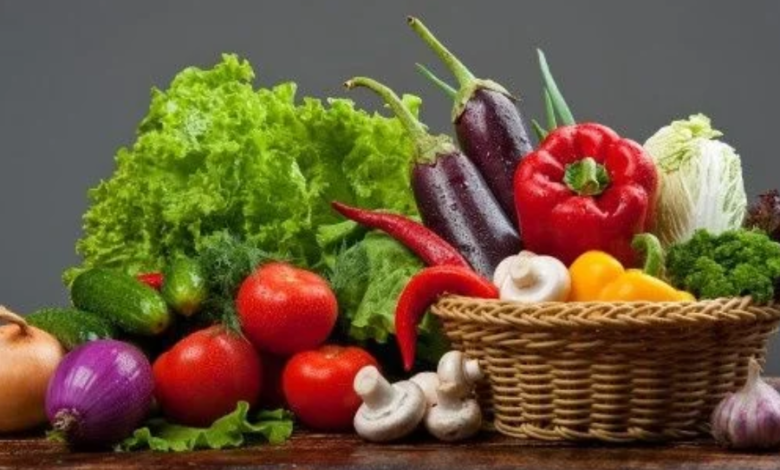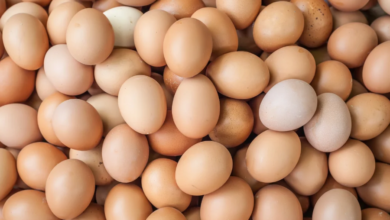The Rise of Ỏganic: Embracing a Sustainable Lifestyle

Introduction
The expression “Ỏganic” has flawlessly incorporated itself into our ordinary language, enveloping everything from the apples we get up at the store to the cotton shirts we wear. In any case, what precisely does “natural” imply? This thorough aide dives into every one of the fundamental parts of natural items, investigating their definitions, practices, advantages, and key contemplations.
What is Ỏganic?
“Ỏganic” alludes to items developed and handled utilizing natural cultivating techniques. These strategies focus on the utilization of normal substances and cycles in crop development and animals raising. The essential objective of natural cultivating is to keep up with and improve the soundness of environments and every living organic entity, from the littlest bugs to people.
Understanding the Ỏganic
“Natural” goes past being a pattern; it’s a direction for living acquiring fame among wellbeing cognizant people. Yet, what precisely does “natural” mean? As far as food and items, it alludes to those developed or delivered without manufactured pesticides, composts, GMOs, or destructive synthetic compounds. Basically, it’s tied in with getting back to nature in its most perfect structure.
At the point when you spot the “natural” name on food or skincare things, it means they were made utilizing feasible techniques that focus on ecological preservation and creature government assistance. Picking natural means choosing better expectations notwithstanding, and supporting ranchers focused on the prosperity of the two customers and the planet.
Understanding the meaning of natural assists you with settling on informed decisions that line up with your qualities and add to a better biological system for people in the future.
Why Choose Organic?
There are a couple of persuading inspirations to pick regular things.
Potential Health Benefits: A couple of assessments suggest that regular food could contain more raised degrees of explicit cell fortifications and enhancements stood out from generally created food. Additionally, avoiding fabricated pesticides and neutralizing agents poisons could enjoy clinical upper hands long term.
Environmental Advantages: Regular developing practices advance biodiversity, further foster soil prosperity, and diminishing water defilement. This adds to a superior organic framework for everyone.
Animal Welfare Concerns: Regular creatures develop spotlights on the success of tamed creatures, giving them more space and ordinary regular conditions.
The Benefits of Ỏganic Products
Health Benefits
Many individuals pick natural items basically for their apparent medical advantages. Natural food sources are liberated from engineered synthetic substances that might be hurtful to wellbeing. Studies show that natural food sources frequently contain more elevated levels of specific supplements, for example, cell reinforcements, which add to in general prosperity.
Environmental Benefits
Natural cultivating rehearses expect to limit contamination, preserve water, diminish soil disintegration, improve soil ripeness, and utilize less energy. By staying away from manufactured pesticides and composts, natural cultivating safeguards the climate and advances biodiversity. This approach is especially significant in this day and age, where natural maintainability is a higher priority than any time in recent memory.
Economic Benefits
While natural items might accompany a more exorbitant cost tag contrasted with customary ones, they fundamentally add to the financial prosperity of ranchers. Natural cultivating techniques frequently require more work and cautious administration, making position and supporting rustic economies. Besides, customers are in many cases able to pay a premium for natural items, possibly prompting higher benefits for ranchers.
The Challenges of Ỏganic Farming
Certification and Regulation
One of the huge difficulties in the natural business is the accreditation cycle. Getting natural affirmation can be both tedious and exorbitant. Ranchers should comply with severe guidelines and go through ordinary reviews to guarantee consistence. This can be a critical boundary for limited scope ranchers who might need assets to deal with the certificate interaction.
Market Competition
The rising interest for natural items has brought about elevated contest on the lookout. Enormous organizations are presently entering the natural area, which can make difficulties for more modest, free ranchers. This expanded contest can drive down costs and psychologist net revenues for limited scope natural makers.
Consumer Education
Regardless of the developing prominence of natural items, numerous shoppers actually come up short on clear comprehension of what “natural” genuinely implies. Misinterpretations and falsehood can prompt disarray and suspicion. Hence, teaching customers about the advantages and standards of natural cultivating is urgent for the business’ proceeded with development.
Impact on Human Health
Organic food is frequently praised for its health advantages. By minimizing exposure to harmful chemicals and potentially providing greater nutritional value, organic products can have a positive impact on human health.
Reduced Exposure to Chemicals
Choosing organic products decreases your exposure to residues from synthetic pesticides and fertilizers, which have been associated with a range of health concerns.
Nutritional Benefits of Organic Food
There is some evidence suggesting that organic foods may contain elevated levels of certain nutrients, such as antioxidants, although further research is needed to establish conclusive findings.
Long-Term Health Implications
While debates persist regarding the immediate health benefits of organic foods, there is widespread agreement on the positive long-term implications of reduced chemical exposure.
Economic Impacts
The natural market has seen critical development, helping ranchers and economies.
Market Growth of Organic Products
The increasing consumer demand for organic products continues to drive a thriving market that shows no signs of slowing down.
Economic Benefits for Farmers
Transitioning to organic farming can often result in enhanced profitability by commanding premium prices. Farmers who adopt organic practices often find new market opportunities and experience higher earnings.
Price Premiums and Consumer Willingness to Pay
While organic products generally come with a higher price tag, many consumers are willing to pay more for the perceived health and environmental advantages they offer.
Challenges in Organic Farming
No matter what its benefits, regular developing countenances a couple of challenges.
Higher Production Costs
Organic farming often results in higher costs due to labor-intensive practices and the need for organic inputs.
Certification Barriers
The declaration cycle can be massive and over the top, addressing a limit for restricted scope farmers.
Market Competition
Normal farmers ought to fight with standard properties and at times face uncertainty about the realness of their things.
The Future of Ỏganic
As mindfulness and interest for natural items keep on expanding, the business is ready for huge development. Nonetheless, it’s critical to deal with this development cautiously to maintain the standards of natural cultivating. This incorporates keeping up with thorough affirmation norms, supporting limited scope ranchers, and proceeding to instruct shoppers about the benefits of natural items.
Innovations in Organic Farming
The fate of natural cultivating is supposed to see progressing development and headways in supportable practices. This includes investigating new strategies for bother control, soil the board, and harvest revolution. These advancements plan to work on the proficiency and viability of natural cultivating, making it more available and maintainable for the two ranchers and customers.
Policy Support
Government strategies and guidelines will assume a pivotal part in molding the fate of natural cultivating. Steady strategies can lessen hindrances to certificate, give monetary impetuses to natural ranchers, and advance innovative work in natural horticulture. By cultivating a steady strategy climate, legislatures can fundamentally add to the proceeded with development and progress of the natural business.
Final Thoughts
Emphasize Sustainability: Highlight how organic farming contributes to environmental sustainability through biodiversity preservation and reduced pollution.
Consumer Awareness: Stress the importance of educating consumers about the true meaning and benefits of organic products to make informed choices.
Economic Impact: Discuss how the growth of the organic market supports farmers and rural economies despite the challenges they face.
Future Outlook: Consider adding a section on future trends and innovations in organic farming that could shape the industry.
FAQs
What does “organic” mean?
Organic refers to products grown or produced without synthetic pesticides, fertilizers, GMOs, or harmful chemicals, following sustainable practices.
Are organic products healthier?
Organic products often contain higher levels of antioxidants and nutrients due to their cultivation practices, which may offer potential health benefits compared to conventionally grown products.
Why are organic products more expensive?
Organic farming practices require more labor and careful management, leading to higher production costs. Additionally, organic certification and market competition can influence pricing.
How can I identify organic products?
Look for certifications such as USDA Organic or other local organic certification labels on packaging. These indicate that the product meets organic standards.
What are the challenges in organic farming?
Challenges include the certification process, higher production costs, market competition, and consumer education about the true benefits of organic products.
What is the future of organic farming?
The future involves advancements in sustainable practices, policy support for organic agriculture, and increasing consumer demand for organic products globally.





